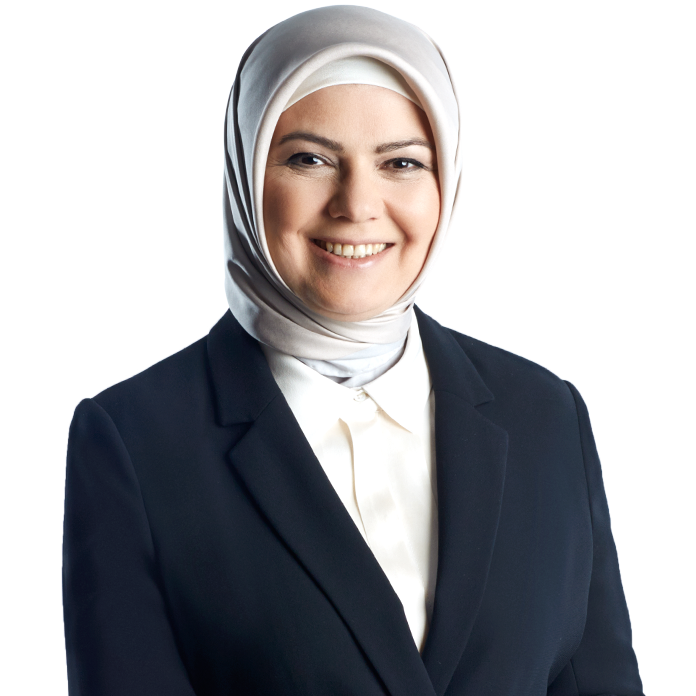During the Russian invasion of Afghanistan and in the aftermath of Iran’s Islamic revolution, the first plan of the US policy in taking control of the region was to reinforce the Sunni Muslim groups. The religious groups were strengthened with the jihad mission against the Russian invasion. The outcome of these supports was of course pre-planned. In a society like Pakistan, where religious orders (tareekah) and clan structure, factional extremism and strict traditionalism and the movement “salafism” exist, finally the results of colonialism led to the occurrence of a state under the hands of the clans and tycoons who carried a background support behind them and grew stronger. The expectation for establishing justice with this particular perception of religion found its feedback among the young people in particular.
In my interview with the former Pakistani Minister of Justice, Shahida Mini, she told me that there are 25,000 salafi madrasas, which were financed by Americans. And these madrasas, which have been active for 30 years, are now facing closure due to political change and the society is reacting to this.
In the aftermath of the 1980s, the dominant term in the news reports and books regarding the developments in these regions was “political Islam” and “Islamism”. After 9/11 in 2001 and the bombardments in London in 2007, the relatively soft connotations such as “political Islam” were abandoned. By the way, let us keep in mind that terms shape the imagination of the entities in the mind. The main concepts and the transitional ones too were meticulously carved into our minds. In the transitional period, fundamentalists and extremists were the valid terms. Now we are encountering the usage of “jihadists” or “Islamist terrorists” and salafists.
The words are shaping our way of perception.
The figures who are accepted as the prominent pioneers of salafism, such as Ibn Taymiyya or Muhammad bin Abdulwahhab, Mawdoodi, Sayyid Qutb, Afghani, Abduh or even Ahmad bin Hanbal, did not occur independently from their historical and political contexts. Ahmad bin Hanbal was a Muslim scholar who did not confirm a hadith report being as sound to justify the deeds of an authority, which in return led to his punishment in which his fingers were crushed. We cannot develop a perspective without building a cause-effect relationship for the advancement of the history of Islamic thought today. It is necessary for us to consider the reason and the geographical conditions, which led to these thoughts. On the other hand, to analyze the reasons from a single angle and being confined to merely external factors always prevent us from developing a healthy perspective. We have to talk about what was going on inside, while looking at the political movements in their historical context and the religious ideas as their dynamics.
We cannot make any progress without considering the question of whether the root of the scholastic perspective is a religion-originated decision, which closed the door for the discussion in Islamic thought.
Salafism is, of course, not identical to Al Qaida or ISIS. Even if salafism is the underlying concept that ideologically nurtured these organizations, their existence cannot be sufficiently accounted for religion. “The idea to return to the Quran and Sunnah which constitute the essence of Salafism or accepting these two sources as core or the emphasis to the pious successors (as-salaf) are not the distinguishing characteristics of the salafi movement. This approach is a common base in the traditional Islamic thoughts and has always existed. In order to understand the acceptance of this discourse in the Islamic community, its transformation, we have to understand and inquire their conditions and how the social ground became amenable to its acceptance. The state of minds that Muslims have, invasions, disappointments, their breaking points in the social-political structure, their quest for legitimacy for resistance and will for authority are among many of the reasons why such movements were born. Today, salafism, which is formed on the basis of the call to return to the Quran and Sunnah, requires literal interpretation, while it closes the doors to other interpretations, avoiding from inferring universal principles from Sunnah and focusing on growing a beard or wearing a turban, using meswaaq and shorter pants. No matter how good the intention behind is, such an attitude causes diversity and deviance in the religious perception in the new world and among Muslims. (Ali Bardakoglu ISAV 2013).
We can add to this background reading the changing conditions of our world, the changing geography of clashes and the western evil axis policies, of course. However, it would be pointless to talk without considering the locations where the otherizing characteristic of any groups or the absolutist religious ideologies are born and what the Islamic world spread in terms of the religious message.
We should discuss the external factors, which create terror groups from the Islamic society, as well as the traditional structure, which abandoned the Islamic thought frozen. If today’s Muslim is still striving to understand Islam through the 3rd century’s legal records or propagate it through these sources and does not let any new discussions take place, we are looking for the answer in the wrong place. To accuse the US is realistic and easy to do. However, does this provide any contribution to the solution other than ignoring our free will and reason?
I believe that Turkey is the only country where it is possible to discuss the blocking impediments on the way in transferring the Islamic thought with this and other new similar questions through the 21th century.
Since Turkey is where the democratic culture is the most developed, to carry out this discussion means to extract the Islamic thought in our minds from its western product “zip” file, too. As long as the connotations of the terms remain the same in our minds, the change won’t mean anything other than simple words.




















